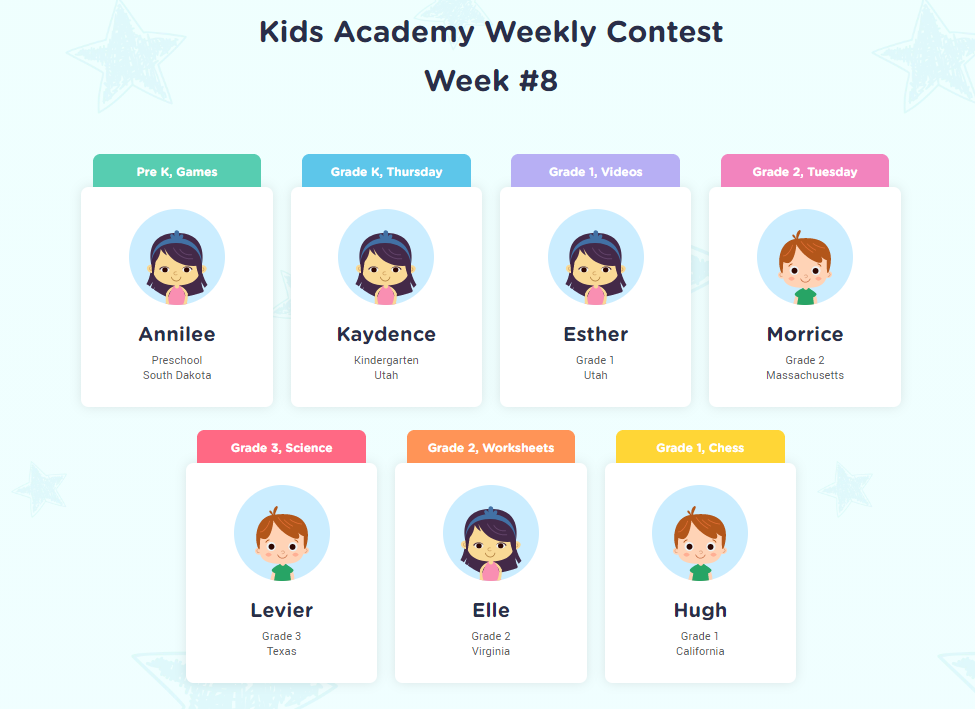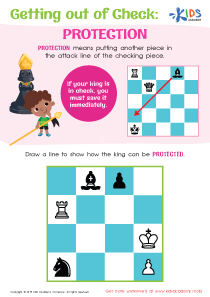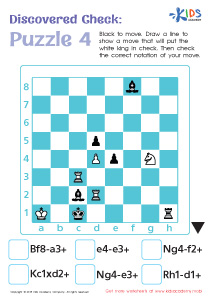Enhancing problem-solving skills Chess Worksheets for Ages 4-6
3 filtered results
-
From - To
Unlock your child's potential with our "Enhancing Problem-Solving Skills: Chess Worksheets for Ages 4-6" from Kids Academy. Specially crafted for young minds, these engaging worksheets introduce basic chess concepts while fostering critical thinking and problem-solving abilities. Perfect for beginners, our activities combine fun with learning through interactive puzzles, step-by-step challenges, and strategic exercises. By gradually improving focus and concentration, these worksheets help kids build a strong foundation in both chess and essential life skills. Encourage your child's intellectual growth and creativity today with our expertly designed chess worksheets. Visit Kids Academy to explore our collection.
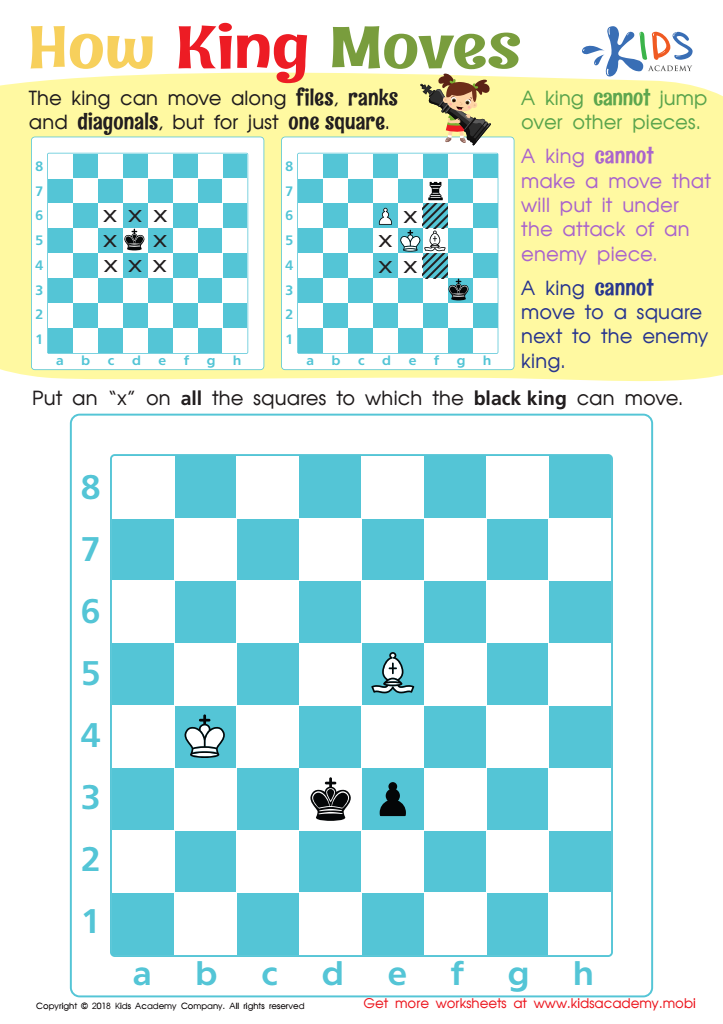

How King Moves Worksheet
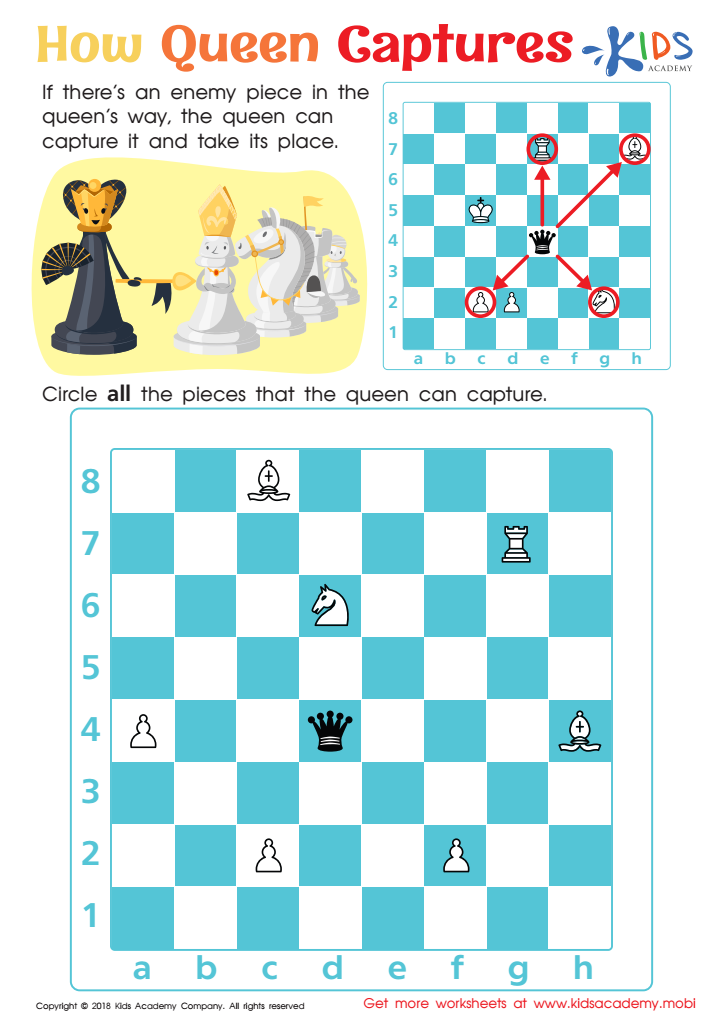

How Queen Captures Worksheet
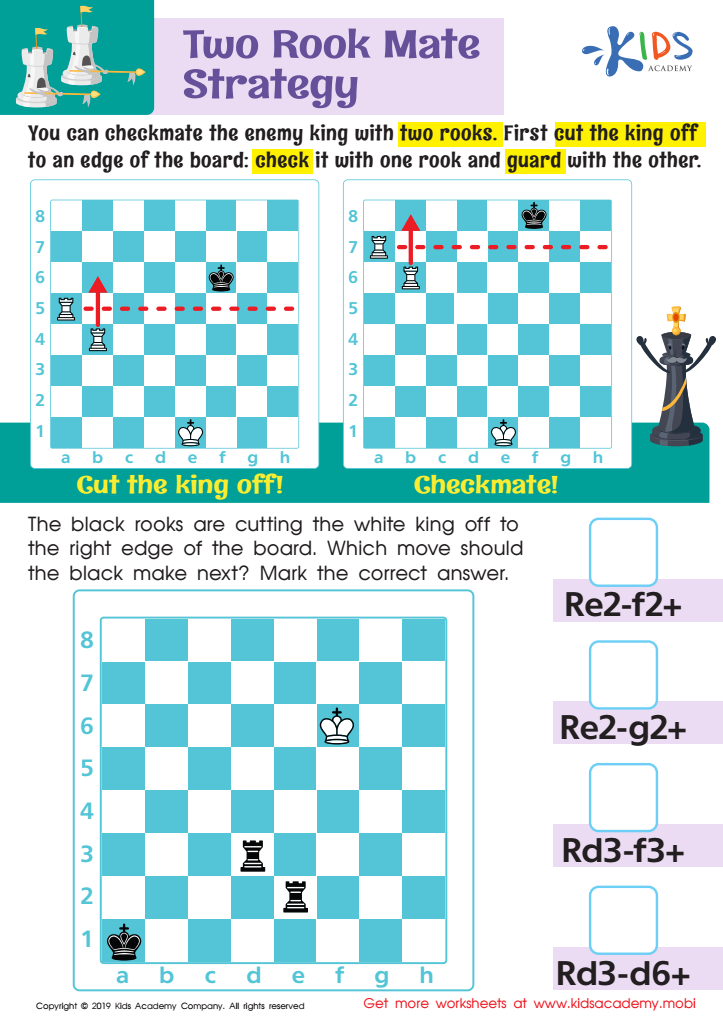

Two Rook Mate Strategy Worksheet
Enhancing problem-solving skills through chess for children aged 4-6 is incredibly valuable for both parents and teachers to consider. At this critical developmental stage, young minds are highly adaptable and capable of absorbing new information quickly. Chess, often seen as a game for older children or adults, can actually be adapted to suit younger kids with simplified rules and guidance.
Playing chess helps boost cognitive development by encouraging children to think critically and strategically. When a child engages in chess, they must plan several moves ahead and consider the consequences of each action. This not only improves their logical thinking and analytical skills but also fosters patience and concentration. Encouraging these abilities can have broad positive impacts on other areas of learning, such as math and reading comprehension.
Socially, chess teaches important skills like taking turns, following rules, and displaying good sportsmanship. It can provide a constructive, screen-free way for children to interact with peers, fostering respect and empathy as they gain experience in winning graciously and losing gracefully.
Therefore, by integrating chess into the routines of young children, parents and teachers are providing tools for intellectual growth, social skill development, and a foundation for lifelong critical thinking.
 Assign to My Students
Assign to My Students






